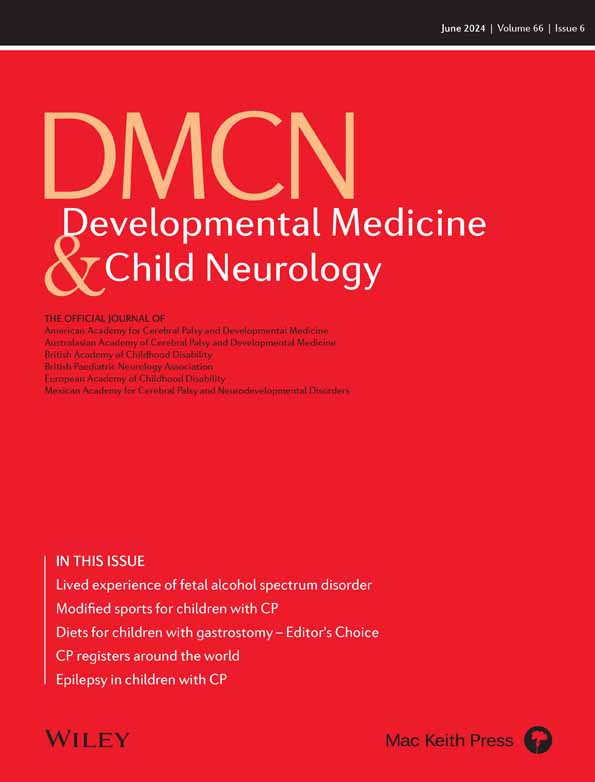Rethinking neurodevelopmental care through caregiver skills training on a global scale: A compelling need
This commentary is on the systematic review by Reichow et al. on pages 713–724
Abstract
This commentary is on the systematic review by Reichow et al. on pages 713–724
Caregiver skills training programs for caregivers of individuals with neurodevelopmental disorders have yielded substantial benefits, including improving the well-being and skill sets of caregivers, and empowering them to develop children's skills and mitigate challenging behaviours. Reichow et al. rigorously analyzed 75 randomized control trials, conclusively affirming the effectiveness of caregiver skills training programs nurturing individuals with neurodevelopmental challenges in various countries.1 Going forward, the field should focus on three essential directions: (1) establishing a universal caregiving skills framework; (2) adapting caregiving competencies to incorporate cultural nuances and individual needs beyond the core protocol; and (3) advocating for the implementation of standardized diagnostic procedures and interventions on a global scale.
Within this realm, an astounding volume of research (approximately 45 000 studies) has delved deeply into assessing the efficacy of caregivers' skills in the recorded database. It is imperative to recognize that this extensive body of work reaches beyond academia; it serves as a resounding call to address real-world needs globally. In 2018, the US Department of Health and Human Services documented 678 000 confirmed cases of child abuse and neglect (https://www.acf.hhs.gov/sites/default/files/documents/cb/cm2018.pdf). Amidst this alarming figure, children with disabilities were significantly more likely to face various types of abuse, being 3.76 times more susceptible to neglect, 3.79 times more prone to physical abuse, and 3.14 times more likely to endure sexual abuse.2 The ongoing COVID-19 pandemic has further exacerbated this dire situation, as underscored by Geprägs et al.3 It is crucial to acknowledge that caregiving is a skill set not necessarily inherent to caregivers, especially parents. Nevertheless, these skills are pivotal for the welfare of families and the holistic development of their dependents, whether they have neurodevelopmental challenges or not. Despite its underlying importance, caregiver training has not received the attention and recognition it deserves. It is frequently overlooked in terms of its significance when compared to a multitude of other certified professions. Consequently, there exists a compelling need to synthesize global caregiving wisdom into a universally acknowledged, evidence-based framework of best practices. This endeavor is not only commendable as valuable life skills but also essential for safeguarding the well-being of vulnerable minors.
Furthermore, embracing the concept of a global village while celebrating individual cultural diversity obligates us to acknowledge the inadequacy of a one-size-fits-all approach. Instead, we must delve into the complexities of cultural disparities, explore the unique needs of each community, and address variations in neurodevelopmental needs. This necessitates tailored solutions that are not only effective but also culturally sensitive and relevant, fostering inclusive global progress.
In conjunction with supporting affected individuals, there exists the complex matter of the global prevalence of neurodevelopmental disorders. Significantly, the DSM-5 offers only limited insights into the prevalence of these disorders within different racial or socioeconomic groups. A systematic review found a very wide range of reported global prevalence, between 4.7% and 88.5%.4 These variations are linked to methodological variables, diagnostic practices, and the level of professional expertise available within individual countries. This underscores the urgent need for standardized assessment procedures and nuanced interventions to obtain a more comprehensive understanding. Such understanding can inform improved treatment plans within the realms of public health and education, addressing socioemotional consequences, academic underachievement, and economic burdens. This effort requires knowledge exchange and tangible support, particularly for less privileged regions.
In conclusion, this often-overlooked realm has long been crying out for attention through alarming incidents. It calls for a future marked by the implementation of sophisticated protocols that encapsulate every facet of the caregiving journey, from assessment to intervention and from professional to caregiving. This, in turn, ensures the holistic care and support which is the right of every individual with neurodevelopmental challenges.
ACKNOWLEDGEMENTS
World Health Organization's Caregiver Skills Training Programme and the Team.
Open Research
DATA AVAILABILITY STATEMENT
Not required.




